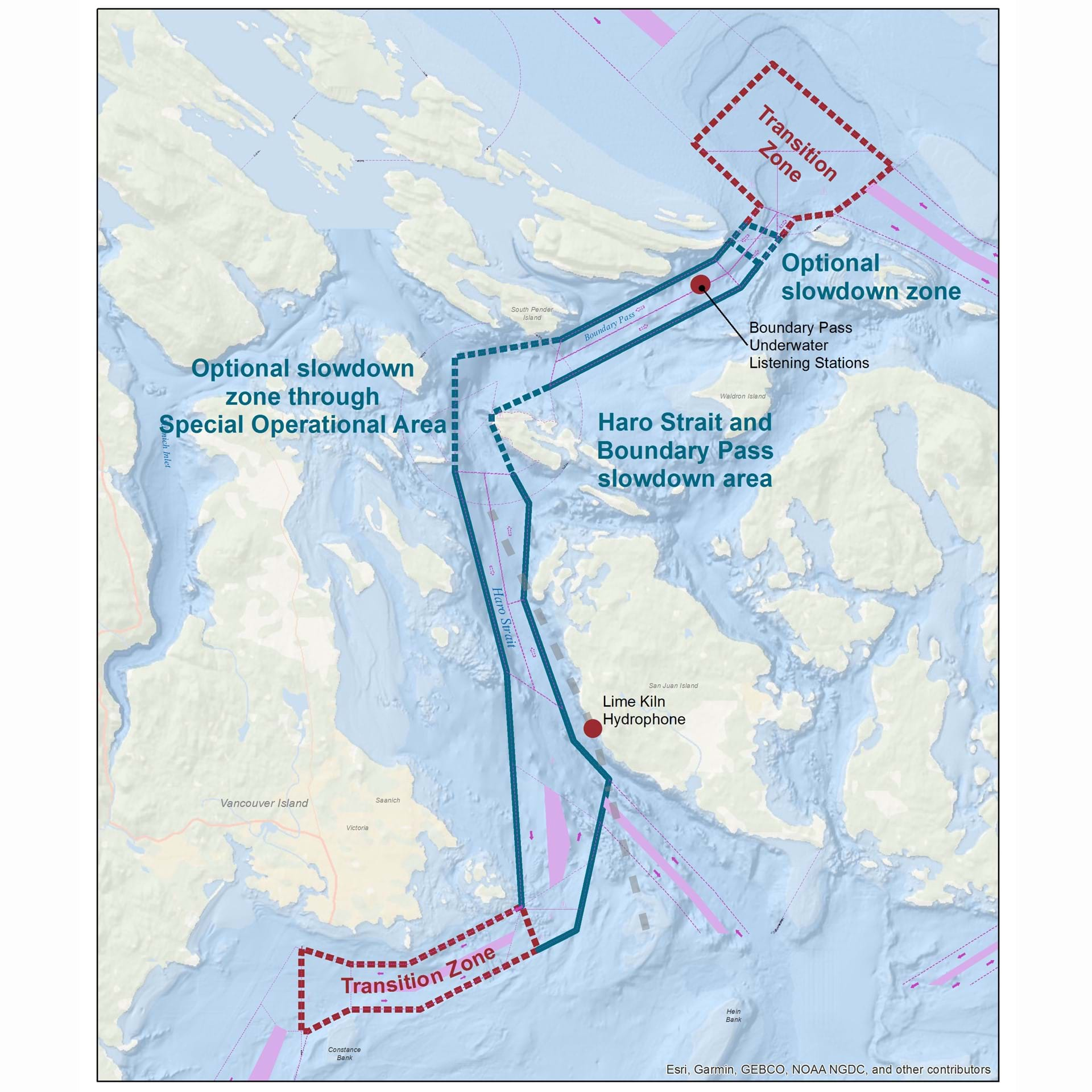
2019 ECHO Program underwater noise reduction initiatives a success
From July 6 to October 15, 2019, the Port of Vancouver through its ECHO Program carried out voluntary initiatives in the Salish Sea to support the Southern resident killer whale recovery efforts. The goal was to reduce underwater noise from ships and tugs in key Southern resident killer whales foraging areas.
Haro Strait and Boundary Pass voluntary vessel slowdown trial
The voluntary vessel slowdown trial included both Haro Strait and Boundary Pass, which were identified by Fisheries and Oceans Canada earlier this year as key foraging areas. The goal of the trial was to maximize the benefits to the Southern resident killer whales by ensuring as many ship operators as possible took part in the trial by slowing down their vessels. Ship operators were encouraged to transit at reduced speeds through the voluntary vessel slowdown trial area where it was safe and operationally feasible to do so.
Although the slowdown distance was almost doubled in 2019 over previous years, the final reported participation results from deepsea vessels with a B.C. Coast Pilot aboard indicate that a high participation rate of 82% (1,279 of 1,551 ships) was averaged in the slowdown trial area over the 11 weeks of the initiative.
Voluntary inshore lateral displacement trial in the Strait of Juan de Fuca
In 2018 a voluntary trial was also initiated to study how moving large commercial ships as well as inshore traffic, such as tugs and barges, farther away from known whale feeding areas in the Strait of Juan de Fuca would affect the underwater noise levels in those areas. The 2019 voluntary inshore lateral displacement trial ended on October 31. Since the trial began on June 17, a total of 109 tugs crossed the Strait of Juan de Fuca and 77 of them (71%) were able to shift their transit south of the killer whale feeding area for more than 75% of their transit.